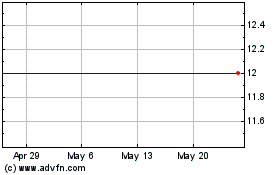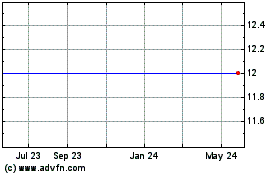New Data Highlight Positive Effect of Namenda(TM) on Brain Activity in Patients With Mild to Moderate Alzheimer's Disease
April 28 2004 - 10:07AM
PR Newswire (US)
New Data Highlight Positive Effect of Namenda(TM) on Brain Activity
in Patients With Mild to Moderate Alzheimer's Disease SAN
FRANCISCO, April 28 /PRNewswire-FirstCall/ -- Forest Laboratories,
Inc. announced today the results of a randomized, placebo-
controlled, PET (positron emission tomography) imaging pilot study
designed to measure the effect Namenda(TM) (memantine HCl) has on
functional brain activity in patients with mild to moderate
Alzheimer's disease. The results in this pilot study suggest that,
compared to placebo-treated patients, treatment with Namenda may
positively affect cerebral glucose metabolism in the brains of
patients with mild to moderate Alzheimer's disease. The data
presented yesterday at the American Academy of Neurology (AAN)
Annual Meeting in San Francisco, California were from a subset of
patients participating in a previously reported Phase III study
evaluating the efficacy of Namenda as monotherapy in mild to
moderate Alzheimer's disease. Researchers use PET to visualize and
quantify a medication's effect on the brain of Alzheimer's patients
over time. The Namenda PET study was conducted in conjunction with
the Phase III, randomized, placebo-controlled study which showed
that the use of Namenda produced statistically significant
improvements in measures of cognition and global function compared
to placebo. "By using the PET brain-imaging technique, we observed
increased metabolic activity of Namenda in areas of a patient's
brain associated with language and attention," said Steven G.
Potkin, M.D., Professor in the Department of Psychiatry and Human
Behavior at the University of California, Irvine, and lead
investigator of the PET study presented at AAN. "While these data
are from a small number of patients and need to be confirmed in
larger scale studies, they indicate that Namenda may be able to
reverse the cerebral metabolic decrease often associated with
disease worsening in patients with mild to moderate Alzheimer's
disease who do not receive treatment." Study Results In the
randomized, double-blind, Phase III study, researchers at one
center used PET to measure the regional cerebral glucose metabolism
of patients with mild to moderate Alzheimer's disease taking 10 mg
of Namenda twice a day compared to patients taking placebo. PET
images were taken at the beginning of the study and 24 weeks later
at the trial's close. The PET imaging study was completed at the
University of California at Irvine and involved 10 patients evenly
and randomly divided between the Namenda and placebo treatment
arms. In the PET study, patients who received Namenda demonstrated
a statistically significant increase in glucose metabolism in
several regions of the brain associated with language and
attention. In contrast, placebo- treated patients showed metabolic
declines in several of these same regions. This pilot study was
part of an overall Phase III trial of Namenda's effect in mild to
moderate Alzheimer's disease which found that patients who received
Namenda performed significantly better on co-primary outcome
measures of cognition and global function compared to patients
given placebo. During a period of six months, 403 patients with
mild to moderate Alzheimer's disease at 42 U.S. centers were given
a daily dosage of 10 mg twice a day. The two primary outcome
measures were the Alzheimer's Disease Assessment Scale -- cognitive
subscale (ADAS-cog) and the Clinician's Interview-Based Impression
of Change -- Plus version (CIBIC-Plus). The ADAS-cog is a commonly
used measure of cognitive function frequently used to evaluate mild
to moderate Alzheimer's disease. It includes items which evaluate
different types of cognitive functions like memory and language. As
assessed by the ADAS-cog, patients receiving Namenda maintained
cognitive abilities above baseline for the entire 24-week study.
Patients receiving placebo exhibited a progressive decline during
the study with the difference between the two treatment groups
being statistically significant (p=0.003). The CIBIC-Plus is a
global measure of a patient's overall status evaluating their
cognition, behavior, and activities of daily living. The results of
the study reveal that patients receiving Namenda had significantly
better global status compared to those taking placebo as assessed
by the CIBIC-Plus (p=0.004). Namenda was well tolerated. In the
trial the most common adverse events reported with Namenda were
agitation, fall, influenza-like symptoms and somnolence. Forest
Laboratories plans to submit to the U.S. Food and Drug
Administration (FDA) a supplemental New Drug Application for a mild
to moderate Alzheimer's disease indication for Namenda in the
second half of 2004. About PET Imaging PET is a non-invasive
technology that can be used to measure metabolic, biochemical, and
functional activity in living tissue. One of the most important
functions of PET is its ability to model biological and
physiological functions in the body by detecting and modeling
regional concentrations of radioactivity in the brain using
radioactively labeled tracers. PET provides detailed information
about functional brain activity and estimates the brain's ability
to utilize glucose, cerebral glucose metabolism, in whole sections
and in regions of the brain. Previous PET studies have shown that
progression of Alzheimer's disease is often associated with a
decrease in cerebral glucose metabolism. About Namenda Namenda
(memantine HCl) is the first in a new class of medications with a
unique mechanism of action that focuses on the glutamate pathway, a
new target for the treatment of Alzheimer's disease. Indicated for
the treatment of moderate to severe Alzheimer's disease, Namenda
was recently approved by the FDA based on the results of three
placebo-controlled studies which demonstrated Namenda's efficacy as
monotherapy, or when used in combination with the commonly
prescribed drug, donepezil. Results from the two U.S. studies in
moderate to severe Alzheimer's disease have been published in The
New England Journal of Medicine and The Journal of the American
Medical Association. About Forest Laboratories and Its Products
Forest Laboratories' growing line of products includes:
Namenda(TM), an N- methyl-D-aspartate (NMDA)-receptor antagonist
indicated for the treatment of moderate to severe Alzheimer's
disease; Lexapro(TM), an SSRI antidepressant indicated for the
initial and maintenance treatment of major depressive disorder and
for generalized anxiety disorder; Celexa(TM), an antidepressant;
Tiazac(R), a once-daily diltiazem, indicated for the treatment of
angina and hypertension; Benicar(R)*, an angiotensin receptor
blocker indicated for the treatment of hypertension; Benicar
HCT(TM), an angiotensin receptor blocker and diuretic combination
product indicated for the second-line treatment of hypertension;
and Aerobid(R), an inhaled steroid indicated for the treatment of
asthma. *Benicar(R) is a registered trademark of Sankyo Pharma,
Inc. Except for historical information contained herein, this
release contains forward-looking statements that involve risks and
uncertainties that affect our business, including risk factors
listed from time to time in the Company's SEC reports, including
the Company's Annual Report on Form 10-K for the fiscal year ended
March 31, 2003 and subsequent quarterly reports on Form 10-Q.
Actual results may differ from those projected. DATASOURCE: Forest
Laboratories, Inc. CONTACT: Charles E. Triano, Vice President -
Investor Relations of Forest Laboratories, Inc., +1-212-224-6714,
Copyright
Forest Road Acquisition (NYSE:FRX)
Historical Stock Chart
From Sep 2024 to Oct 2024

Forest Road Acquisition (NYSE:FRX)
Historical Stock Chart
From Oct 2023 to Oct 2024
